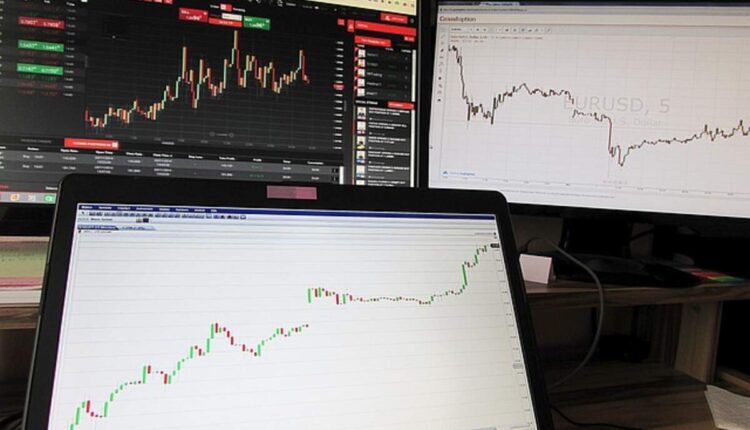How to Choose an Online Forex Broker
Online forex brokers enable traders to trade currencies on the global currency market. They offer different trading platforms and various services for traders of all experience levels, such as education, customer support, deposit/withdrawal options, etc. Obtain the Best information about forex robots.
Brokers charge a spread fee for each trade they execute and can offer leverage, which magnifies profits or losses.
Spreads
Forex brokers make money through a spread, or the difference between buy and sell prices, that they charge their clients. The lower this spread is, the cheaper trading will become. A commission fee may also apply when you execute trades through them. Brokers offer various kinds of spreads, such as bid-ask spreads or yield spreads; each pair may incur specific spread charges.
Some brokers offer fixed spreads that are consistent and stable, perfect for traders seeking to limit the risk of unexpected price fluctuations. On the other hand, other brokers may provide variable spreads, which fluctuate depending on market volatility and the type of currency pair being traded.
Spread is an integral factor in trading costs. Selecting a broker with low spreads and no commission fees will reduce overall transaction costs; what you owe per trade depends upon multiplying the spread by your transaction size.
An ideal online forex broker must maintain an excellent reputation within industry standards and offer user-friendly platforms and currency pairs for trading. Some may even provide tools and analysis to make trading simpler. However, be wary of brokers offering low or no spreads, as these may require higher commission fees to trade successfully.
Leverage
Forex brokers offer traders leverage, enabling them to trade more than is in their trading account. Leverage may vary according to broker and country; some offer up to 400 times. Leverage makes forex trading more thrilling; however, it also increases risk.
When choosing a forex broker, it is essential to assess their minimum margin requirements and leverage. Each broker varies in these regards, so it is best to find one that fits your trading style and financial circumstances. Also, consider whether they provide customer support in your native language and 24/7/365.
Forex brokers must offer more than leverage; they should also offer a variety of market instruments. These could include major and minor currency pairs as well as exotic pairs. Some brokers may even provide access to indices and commodities trading, though this option may be less common. When choosing your broker, check their list of available markets and any regulations in which they operate.
As it is best practice, selecting an FCA-regulated broker protects in case they close down or provide subpar advice. Although unregulated forex brokers exist, be mindful of any associated risks before choosing them.
Customer support
Customer support services are an integral component of selecting an online forex broker, making trading much more enjoyable and successful for traders. When assessing customer support services from different brokers, several considerations need to be taken into account, including their response speed when answering inquiries quickly, availability of educational materials, and multiple channels of communication available to them.
Customer service is of utmost importance in today’s 24/7 trading world, as traders work around the clock. A dependable broker should offer a range of non-invasive communication channels like email and text messaging as well as live communication methods like phone support and live chats to allow their clients to get in touch with a representative whenever it suits them best.
Traders should seek brokers that provide multilingual customer support, which is especially helpful for international traders who may struggle to understand English. In addition to customer service, brokers should offer educational resources like webinars and courses to help traders develop their trading skills.
Be wary of any brokers with poor reputations or reliability ratings; scams exist on the Forex market, so it is wise to be cautious before opening an account. Scammers often impersonate authorized brokers in order to convince traders to pay them money through misleading contacts or registration numbers that appear legitimate.
Trading platforms
Online forex brokers provide trading platforms that enable traders to trade the global currency market 24/7. This market facilitates round-the-clock currency exchange, allowing traders to buy and sell currencies at agreed prices. Forex brokers generally offer different accounts suited to traders’ needs and experience levels; additionally, they often provide educational materials for learning about forex trading markets and currency trading itself.
Traders have access to several trading platforms, including cTrader, MT4, MetaTrader 5, and SaxoTraderGO. Each provides features such as detailed charting and market analysis, as well as automation through expert programming or a C #- #-based framework. Some also support multiple order types, including stop orders and trailing stops, while all can be accessed from desktop, web browsers, or mobile devices.
Online forex brokers provide more than trading platforms; they also offer access to an impressive selection of trading assets, including currency pairs, stocks and ETFs, commodities, indices, cryptocurrency futures contracts, hedging/scalping capabilities, and automated trading tools such as bots.
Forex brokers also provide various account types for retail and professional customers. Brokers usually charge commission or spread fees with each trade made, while additional fees such as inactivity or overnight fees may also apply.



Comments are closed.